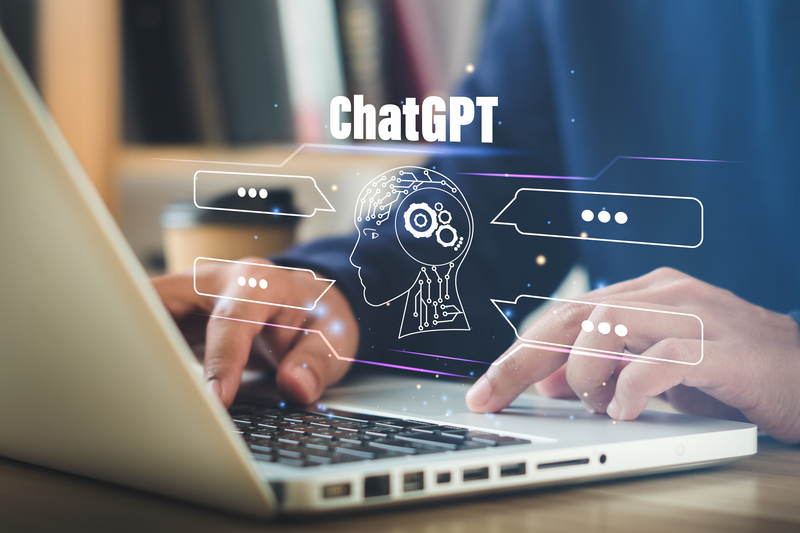
Photo: Wanan Yossingkum | Dreamstime.com
Cities explore the potential of ChatGPT
14 February 2023
by Sarah Wray
Since OpenAI’s next-level chatbot ChatGPT burst onto the scene in November, it has spawned widespread debate over the opportunities, benefits and risks presented by generative artificial intelligence (AI).
Microsoft has invested billions in start-up OpenAI and earlier this month, Google unveiled its own conversational AI rival, Bard.
It’s very early days for these emerging technologies, with many ethical, technical and practical issues still to be played out, but some cities are moving early and beginning to experiment.
Singapore’s civil servant helper
Singapore is looking at using AI language models, such as those that underpin ChatGPT, to speed up common tasks for civil servants.
“We spend a lot of time writing in government, whether we are crafting policies, managing operations or communicating with citizens. It’s not just how we communicate, but it’s how we think in government,” said Moses Soh, a Senior Product Manager at Open Government Products (OGP), Singapore’s in-house experimental development team that builds technology to solve public sector challenges.
“We think that large language models like GPT-3 can accelerate this knowledge work.” The GPT-3 family of models powers ChatGPT.
Soh was speaking at the annual Hack for Public Good event last week, where he presented a tool called Pair, which is built on the government commercial cloud and integrated with Azure OpenAI, Microsoft’s enterprise large language model offering.
The tool was built directly into Microsoft Office, “where most public officers spend our time,” said Soh.
Soh described how officers can use Pair to speed up common tasks like researching and drafting policy papers, summarising news, answering citizen queries, or “getting the gist of long documents in seconds”.
When officers reply to resident queries, the tool can make sure responses are consistent with the agency’s previous communications. As well as supporting writing, Pair can also help with other natural language tasks such as quickly redacting personally identifiable information from documents like contracts.
“Suffice to say we are excited to see what officers do with this tool and we’re doing everything we can to ease adoption in core workflows,” said Soh. “This requires large language models within easy reach of every officer, equipped to reason over public sector knowledge, and that can only be done with a strong foundation of security.”
To protect data, Soh said Microsoft has committed to turning off logging on all requests and responses for Pair.
OGP is developing Pair with Singapore’s Smart Nation and Digital Government Office (SNDGO) and several other departments, with a plan to roll out a public sector pilot with up to 150,000 officers.
SNDGO is also working to clear Pair for use with more sensitive data, “opening up more use cases for officers compared to off-the-shelf alternatives”.
“We look forward to making this more widely available to more officers and deepening its capabilities in specific domains,” Soh commented.
He added that Pair is a model-agnostic platform and other providers will be onboarded.
Dubai claims utility first
Elsewhere, Dubai Electricity and Water Authority (DEWA) has announced that it is working to enrich its services with ChatGPT technology supported by Microsoft.
The organisation claimed to be the first utility globally and the first UAE government entity to use the new technology.
DEWA intends to provide ChatGPT technology through its Digital DEWA subsidiary Moro Hub, which offers digital and cloud services.
The utility said its aim is to provide services supported by ChatGPT and employ it in serving customers and employees.
Further details were not provided but in the announcement DEWA highlighted ChatGPT’s advanced ability to interact with users through dialogue and learn and understand their needs and enquiries, as well as being able to write programming code and solve coding problems.
“Our collaboration with Microsoft is a translation of the vision and directives to benefit from digital technologies and artificial intelligence to improve performance and enhance people’s lives,” said Saeed Mohammed Al Tayer, MD and CEO of DEWA. “It also supports the Dubai 10X initiative and our endeavour to contribute to shaping a new digital future for Dubai through Digital DEWA, the digital arm of DEWA, becoming the world’s first digital utility to use autonomous systems for renewable energy and storage.”
“We are also expanding the use of AI and digital services,” he added.
Naim Yazbeck, General Manager of Microsoft UAE, commented: “We applaud DEWA for their pioneering spirit and look forward to further exploring the possibilities of integrating cutting edge technologies into their products to enhance their business, services and customer experience.”
DEWA developed an AI roadmap in 2017. The same year it launched Rammas, an AI-powered “virtual employee”. By the end of 2022, Rammas had answered over 6.8 million enquiries, according to DEWA.
Benefits and risks
Advanced AI tools such as ChatGPT have raised many issues, including the potential impact on jobs and education, as well as possible misuse by bad actors.
It has been banned in some schools due to concerns about cheating.
The market value of Google’s parent company Alphabet took a dive last week when the Bard tool shared an inaccurate answer in an advertisement.
OpenAI’s Chief Technology Officer Mira Murati told Time recently that AI should be “aligned with human values”.
“It’s important for OpenAI and companies like ours to bring this into the public consciousness in a way that’s controlled and responsible,” she said. “But we’re a small group of people and we need a ton more input in this system and a lot more input that goes beyond the technologies – definitely regulators and governments and everyone else.”











